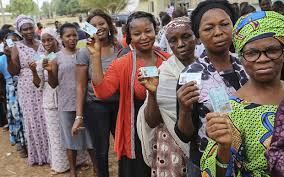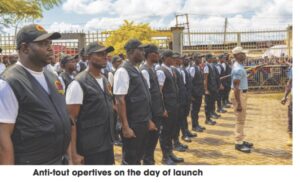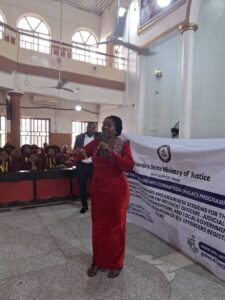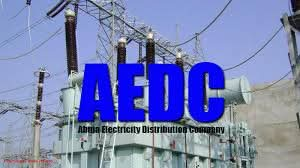STRENGTHENING TRANSPARENCY, ACCOUNTABILITY IN GOVERNANCE AND ELECTORAL PROCESS: FOCUS ON THE LG SYSTEM IN ANAMBRA
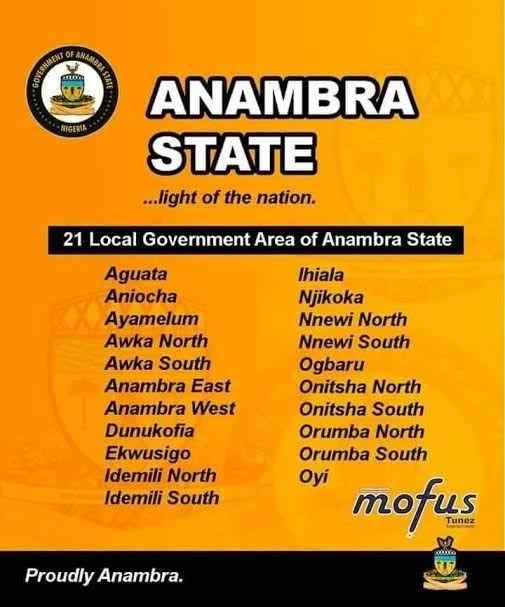
By Dr. Henry Chigozie Duru
I. INTRODUCTION
- The 1976 local government reform in Nigeria was an attempt to realise local government as the third tier of government where participation of the grassroots in governance is best guaranteed through bringing government closer to them.
- That historic reform bequeathed to us the present local government system having its foundation in section 7 (1) of the CFRN 1999 (as amended).
- Looking at the Fourth Schedule to the Constitution which prescribed what should be included as part of functions of a local government, one would become very certain that the framers of the constitution intended something so much different from the present situation where the local government system has been emasculated by state governments and deprived of powers to function as the third tier of government.
- The foundation of this emasculation of the LG system lies in depriving it of its constitutional legitimacy by making it to assume a status of an appointed as against an elected government as prescribed by the constitution (see section 7).
- Once the LG system lacks the constitutionally prescribed democratically elected status, great violence is done, not just to its legitimacy, but also to its capacity to function as a platform for grassroots participation in government.
- It’s on this note that I invite us all here today to reflect on the long quest for LG elections in Anambra State with a view to attempting to address these questions: Where are we coming from? Where are we today? And where do we want to be tomorrow?
II. WHERE ARE WE COMING FROM?
- The last time there was an LG election in Anambra State was January 2014 which is a month shy of 10 years ago. Since then it has been the so-called transition committees which end up not living up to their expectation of being transitory, stop-gap, arrangements pending a proper election; in effect they end up being a substantive arrangement, albeit without being officially designated so.
- Since the tenures of the officials elected in that 2014 exercise elapsed, it has been a tale of unfulfilled LG election promises.
- It will be recalled that even before the conduct of the 2014 elections, there was a long delay in constituting democratically elected LG Councils causing the civil society groups and opposition parties to push for the needful to be done until the election waa finally held.
- Therefore, one can say without fear of contradiction that ours is a history of enduring illegitimacy as far as the LG system is concerned.
III. WHERE ARE WE NOW?
- We’re back to a familiar spot as the incumbent Governor, Prof. Chukwuma Soludo, pledged to conduct another election early in his tenure in office. However, situation on ground does not exactly suggest that this will be the case. One compelling pointer to this is the non-constitution of the ANSIEC yet and lack of provision for the election in the 2024 appropriation bill.
- But then the government has not come out to categorically declare that it’s reneging on its promise to conduct LG elections. However, its body language suggests strongly that it’s not exactly ready to hit the ground running in this respect.
- We witnessed a similar scenario under Gov. Peter Obi, who eventually conducted the last LG elections in 2014, just in the twilight of his administration which ended on March 17, 2014. Are we about to witness the same pattern this time around?
- By next year, the tenures of the current caretaker chairmen and councillors will elapse and we’re likely to witness an extension of the caretaker arrangement, which as stated earlier, remains unknown to our grundnorm, the constitution.
- From the foregoing, it’s very obvious that where we are today isn’t the place of our dream as far as realising a democratically and developmentally robust LG system is concerned.
IV. WHERE DO WE WANT TO BE TOMORROW?
- One thing that’s undebatable is that we need to have local government elections in Anambra State, if not for anything, to comply with the Constitution.
- Consequently, it is imperative that all of us, especially those in the civil society, do not relent on our demand and pressure on the government to do the needful. There is a paramount need to continue to underline the fact that so long as our LG system operates without democratically elected officials, we’re in breach of the Constitution which categorically prescribed this as an inherent constituent of our LG set-up.
- This is why we need a Forum like this to ideate and cross-fertilise ideas towards further refining our arguments as to why we need LG elections now.
- However, our task does not just begin and end with demanding for LG elections. We must advert our mind to those fundamental variables that have kept us where we’re today; those factors that have continued to frustrate a culture of democratically functional LG system, not just in Anambra, but in Nigeria as a whole. I will try to highlight them here:
- The first is political instrumentalisation of the LG system by state governors. These chief executives have continued to see the LG system, not as a fully-fledged third tier of government for service delivery to the people, but as a tool for strengthening their political position. So, they see it a personal political weapon to be guarded jealously, hence are reluctant to subject its composition to an electoral process. This is why it has become commonplace for incoming governors to sack elected or appointed LG officials when they belong to opposition parties This is unmitigated appropriation of State apparatus; weaponisation of State institution for political gains.
- It’s for the above reason that even when governors are benevolent enough to conduct LG polls, these exercises end up being a charade as they become a selection rather than an election process. Thus, the ruling party in any state hardly gives the opposition a chance in any LG elections. Having appropriated the LG system as a political arsenal, these governors would take no risk of living it for grabs in a free and fair election.
- Thus, it’s not just about having LG elections, but having it in a manner that’s consistent with its democratic status as envisaged by the constitution. As it stands, with the way State Governors are interfering with LG polls, what we have been having at that tier of government is pseudo democracy.
- In fact, the governors have turned the LG system to an instrument of political patronage for reward of loyal partymen and other supporters. Thus, these appointed or supposedly elected officials are mere appendages to the governors which makes mockery of the constitutionally envisaged democratic functioning of this tier of government.
22 Another factor to be signposted in our quest for a viable and democratically functional LG system is the financial interest of State Governors in local governments. This has been seen as one of the variables that have nurtured this culture of reluctance to allow genuine democracy at this level of government. Appointing LG officials or meddling in their election enables the governors to maintain control over the finances of the local governments.
- This leads us to the issue of accountability and transparency in the LG system. A lot of things seem shrouded at that level of government as there is no robust mechanism for checks and balances. This is largely given that, that tier of government has not been exactly constituted as a democratic unit. A situation where state governors have emasculated the financial system of the LG system would give little room for transparency.
V. CONCLUSION
- The crisis of democracy bedeviling our LG system today is put in sharp relief by the present scenario where LG elections are no longer a matter of constitutional mandate but a benevolent patronage from the State chief executives. It has become a legitimate and applaudable campaign promise of politicians. What’s a legal mandate is now cited as an achievement by Governors. We do not see anything like this in relation to governorship elections.
- There is therefore an urgent need to take another look at our situation to try to detect those factors that have given State Governors overbearing powers over the process of constituting LG administrations. Presidents don’t seem to have options vis-a-vis providing for conduct of governorship elections, how come governors exercise such strange powers over whether LG elections will hold or not? We need to look at our system again.
- We also need to take another look at the state electoral commissions, how they are appointed, how they are funded and the entire relationship between them and the executive arm of government.
- Finally, the overall implication of the foregoing is that there is need to rejig the structures and processes that throw up those steering governance at the third tier. There is also the need to rejig the entire scaffolding of local government operations in Anambra and Nigeria in general towards making that tier of government optimally effective, democracy and development wise.
Thanks for listening.



